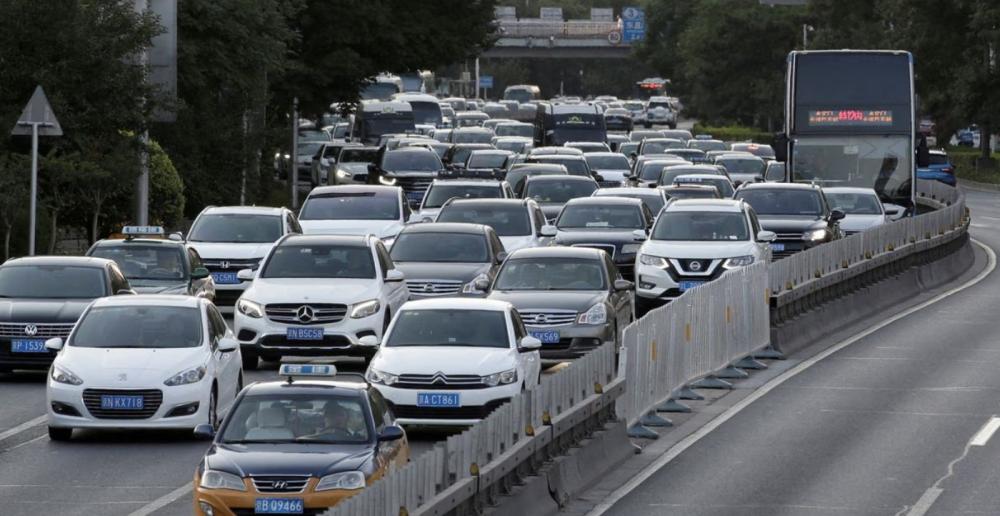"No price reduction" promise reversed, car market competition intensified! After 7 years, only 30 of the 167 car companies will survive?
Tencent Auto, July 11, since Tesla cut prices in China in January this year, about two dozen automakers have cut prices to maintain competitiveness and stimulate demand. These automakers include Xpeng, Geely, Volvo, Chery, NIO and Great Wall.
Global automakers are also following suit. Ford cut the price of the Mustang Mach E electric car. Toyota offers discounts for its bZ4X electric vehicles,
Nissan
Offers for its Aliya electric vehicles. General Motors,
Honda
Stellantis, Ford and Nissan have also cut prices for fuel vehicles, whose market share is being eaten away at by electric vehicles and plug-in hybrids.
As the world's largest auto market, China's car sales are expected to reach nearly 25 million units this year, with an overall growth rate of about 3%, and the share of electric vehicles and plug-in hybrid vehicles is rising rapidly. Consulting firm AlixPartners predicts that this year will be the first time that China's domestic brand share of the domestic market exceeds 50%.

Analysts say the changes have led to increased competition for price and features, driving sales of electric vehicles but also threatening profitability across the industry. In March, the China Association of Automobile Manufacturers urged automakers and local governments to cool off the "price reduction hype" to ensure the industry's stable development. Analysts said consumers have been waiting for bigger discounts before buying, while some auto suppliers have been forced to accept price cuts.
At an event in Shanghai on Thursday, the China Association of Automobile Manufacturers brokered a series of pledges signed by executives from 16 automakers, including Tesla, a leader in the electric vehicle industry
BYD
。 Promising to "not disrupt fair competition in the market with abnormal pricing" to stabilize the market and promote consumption is seen as a truce in the price war.
But just a day later, Tesla said it would send a message to include China
Model 3
and
Model Y
The model offers a referral bonus of approximately $500. Volkswagen also announced a price reduction for the ID series electric vehicles in China.
Last Saturday, just two days later, the China Association of Automobile Manufacturers withdrew its commitment to cut prices. Cui Dongshu, secretary general of the Passenger Association, said that signing the letter of commitment is not to engage in price monopoly and not allow enterprises to reduce prices, and there should be no excessive interpretation of this, "It is necessary to establish a unified national market, and we cannot engage in vicious price competition, especially some price competition like 'government-enterprise linkage', and cannot let other forces participate in the competition of enterprises and interfere with the national market." He explained that price stability is not about not lowering prices, but about providing consumers with a stable price expectation.
International automakers remain under intense pressure to restructure their operations in China, and there are signs that consumer pricing pressures are counterproductive to worker furloughs and declining supplier margins.
Some expansion plans are also stalling. Tesla is still waiting for approval of a plan to boost production at its Shanghai plant. The Shanghai plant is the company's largest and highest production plant. Last week, some battery pack workers at Tesla's Shanghai factory received layoff notices, although production plans remain unchanged. Hyundai, the world's third-largest sales company, said last month it would close a plant in China and seek to sell it alongside one that closed last year.
AlixPartners said that although China's electric vehicle market will continue to grow rapidly, increased competition and overcapacity will also drive the market reshuffle. The company predicts that by 2030, only 25 to 30 of the 167 companies registered to produce electric or plug-in hybrid vehicles in China will survive.
At the same time, Chinese car brands are targeting growth in overseas markets such as Europe and Southeast Asia. Chinese automakers have invested $1.4 billion in Thailand since 2020 and now dominate the Thai electric vehicle market after taking market share away from Japanese car brands that have long operated in Thailand.
Reviewer: Lemon